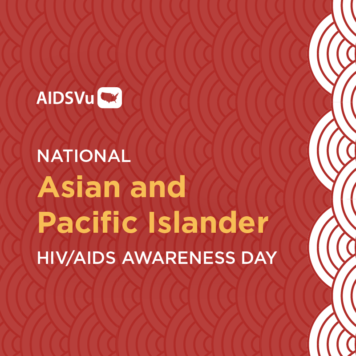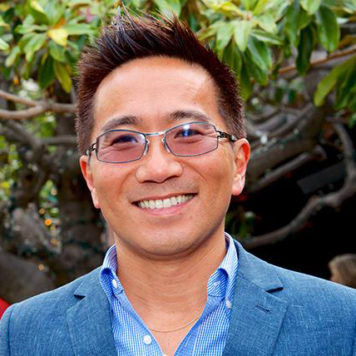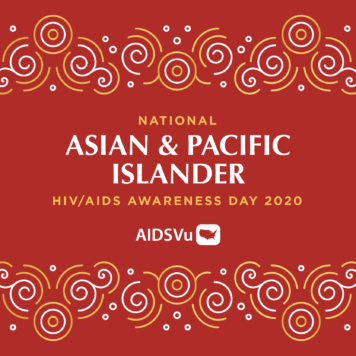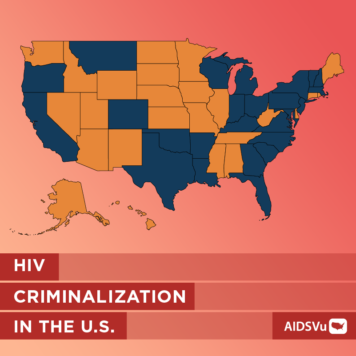Capacity for Health (C4H) is the national capacity-building program of the Asian and Pacific Islander American Health Forum (APIAHF).
Q: Can you describe the Capacity for Health program at the Asian and Pacific Islander American Health Forum (APIAHF) and the work you do with HIV and viral hepatitis among Asian American, Native Hawaiian, and Pacific Islander (AANHPI) community?
C4H: The Asian and Pacific Islander American Health Forum’s (APIAHF) Capacity for Health (C4H) program is made up of public health practitioners and user experience/service designers with backgrounds in non-profit organizations, health departments, and community health centers; we are a diverse group of people dedicated to improving the health of communities of color across the United States.
APIAHF has been working in HIV/AIDS since the late 1980s and we were an early fiscal sponsor for several emerging Asian American (AA) and Native Hawaiian/Pacific Islander (NHPI) community organizations, including the Filipino Task Force on AIDS and the Gay Asian Pacific Alliance Community HIV Project. We were awarded the first national grant from the Centers for Disease Control and Prevention (CDC) to provide technical assistance to support HIV prevention in AA and PI communities, creating C4H in 1993. C4H is a CDC-funded program that delivers national capacity-building assistance services to support all communities of color, not just AA NHPI communities, across the United States.
In 2019, we were awarded a grant under CDC’s program, PS19-1904: Capacity Building Assistance for High-Impact Prevention Program Integration, which supports the federal initiative, Ending the HIV Epidemic in the U.S. Under this grant, we developed the National Learning Community for HIV CBO Leadership, a distance-based learning program for managers at community-based organizations (CBOs) providing HIV prevention services. The program has been running for a couple of months now and it’s a great opportunity to connect with and offer resources to HIV CBOs across the country, especially during the COVID-19 pandemic.
We are also currently producing a podcast and video series on Ending the HIV Epidemic in the U.S., titled “When Does It End?”, highlighting the ingenuity of people, programs, and organizations who are leading the fight against HIV and featuring experts who tackle the question, “What will it take to end HIV?” Our next episode focuses on the issue of HIV in AA and PI communities to recognize Asian Pacific American Heritage Month and National Asian and Pacific Islander HIV/AIDS Awareness Day. You can watch the episode on our Facebook page on Wednesday, May 26 at 3 pm PT/6 pm ET.
Q: APIAHF focuses on improving healthcare access, quality, and equity for the more than 20 million Asian Americans, Native Hawaiians, and Pacific Islanders in the U.S. How has the COVID-19 pandemic and ongoing anti-Asian violence impacted APIAHF’s work?
C4H: COVID-19 and the rise in public recognition of anti-Asian violence and hate have affirmed the importance of centering our communities’ needs by actively listening to the challenges they are facing and lifting up community leaders.
In response to the COVID-19 pandemic, APIAHF supports CDC’s COVID-19 response efforts by strengthening partnerships among AA NHPI CBOs. Our objectives are: 1) conduct COVID-19 education and outreach activities, 2) increase acceptance of vaccines among AA NHPIs, 3) increase access for AA NHPIs to immunization services, and 4) increase language access to support the most vulnerable populations.
APIAHF is working with our partners to design and deliver effective interventions to improve vaccination rates among AA NHPIs and reduce disparities in adult populations among AA NHPIs. Building upon existing COVID-19 educational campaigns for both the healthcare workforce and hard-to-reach AA NHPI populations, APIAHF and 27 organizational partners launched the National AA and NHPI Health Response Partnership with the support of the CDC. The partnership offers culturally appropriate and linguistically accessible resources to inform AA NHPI communities about COVID-19 vaccines and other public health issues. In addition, APIAHF utilizes trusted AA NHPI community voices and leaders to support education efforts. APIAHF and five AA NHPI partner organizations are supporting CDC’s Project Firstline education and training initiative for infection control in our communities by translating and sharing CDC’s resources, events, and trainings in eight AA NHPI languages.
In response to anti-Asian hate and violence, APIAHF and the National Asian Pacific American Bar Association (NAPABA) have developed a hate crime/incident toolkit that provides basic and critical information for victims, community-based organizations, and community leaders. Translated into 25 AA NHPI languages, this information provides background on understanding what is a hate crime, how to work with law enforcement and the media, as well as a comprehensive checklist for community organizations.
Q: Despite a decrease in new HIV diagnoses in 2019, the AANHPI community is still less likely to be diagnosed with HIV and receive HIV treatment compared to other races/ethnicities. What are the cultural and structural factors that contribute to this disparity? How can we engage the community to raise awareness of HIV prevention, testing, and care?
C4H: At the structural level, there is a lack of accurate and comprehensive HIV/AIDS data available on AA NHPI communities. CDC acknowledges on their website that one of the prevention challenges is: “the reported number of HIV cases among Asians may not reflect the true HIV diagnoses in this population because of race/ethnicity misidentification.” Without accurate and representative data, understanding our communities’ distinct risks and barriers is difficult and limits our ability to design and implement tailored efforts to engage AA NHPI communities in HIV prevention and treatment.
At the cultural level, AA NHPI communities struggle to find culturally and linguistically accessible services and care, which further perpetuates stigmas around HIV/AIDS and Gay and Bisexual men, a group disproportionately affected by HIV. According to a study conducted by the CDC, more than 40% of Gay and Bisexual AA NHPI men had either never been tested for HIV or had not been tested in the year prior to the study. The most common reason cited was that Gay and Bisexual AA NHPI men believed they were not at risk for infection, demonstrating a disconnect between outreach efforts and the at-risk population. It’s important to highlight that this study also under-sampled AA NHPIs, who only represented 3% of the survey sample, compared to the 5.6% of AA NHPIs in the U.S. at the time – underscoring a need for more engagement in the AA NHPI community.
Q: According to the Department of Health and Human Services’ (HHS) Viral Hepatitis National Strategic Plan, Asians and Pacific Islanders are a priority population in regards to Hepatitis B, with a specific goal of reducing the rate of Hepatitis B deaths to 1.84 per 100,000 people by 2025, compared to the 2.1 deaths per 100,000 people in 2018. How does APIAHF work to reduce health disparities and help the API community access treatment for Hepatitis B?
C4H: APIAHF currently provides capacity-building and technical assistance to partner organizations related to tuberculosis prevention in AA NHPI communities and C4H provides capacity building to HIV CBOs related to managing the diagnosis, prevention, treatment, and response to HIV. We encourage partners who also provide Hepatitis B services to apply their learnings to their vaccination, detection, and treatment models to drastically reduce the rate of Hepatitis B and Hepatitis B-related deaths.
Q: May 19 is National Asian and Pacific Islander HIV/AIDS Awareness Day and May is Asian American and Native Hawaiian/Pacific Islander Heritage Month. How can policymakers, healthcare professionals, and patients, work towards eliminating HIV and viral hepatitis in the AANHPI community? What message do you have for the AANHPI community as they reckon with violence and discrimination during a public health crisis?
C4H: This National Asian and Pacific Island HIV/AIDS Awareness Day, we honor the people in our communities who live with HIV/AIDS and we remember the lives and legacies of those who have passed from the disease. We continue to work towards eliminating HIV and viral hepatitis in the AA NHPI community by raising awareness about both diseases and their impact on our communities as well as aiding frontline CBOs providing critical HIV care and prevention services. Policymakers, healthcare professionals, and patients can work to eliminate HIV and viral hepatitis in the AA NHPI community by raising awareness about prevention, testing, and treatment services to eliminate HIV stigma.
We believe that combating anti-Asian hate and violence is essential to enhancing the safety, security, and health of AA NHPI communities. In observance of Asian American and Pacific Islander Heritage Month and Mental Health Awareness Month this May, we participated in a roundtable discussion with partner organizations to discuss the impact of COVID-19 and social injustice on our diverse AA NHPI communities. Racism is a public health crisis and we stand in solidarity with AA NHPI communities, our racial justice and civil rights partners, and our allies in speaking out against race-based hate and violence as we work towards eliminating health disparities across communities of color in the United States.




